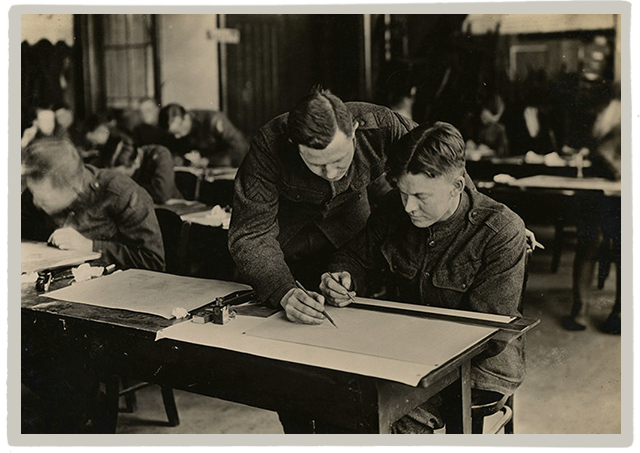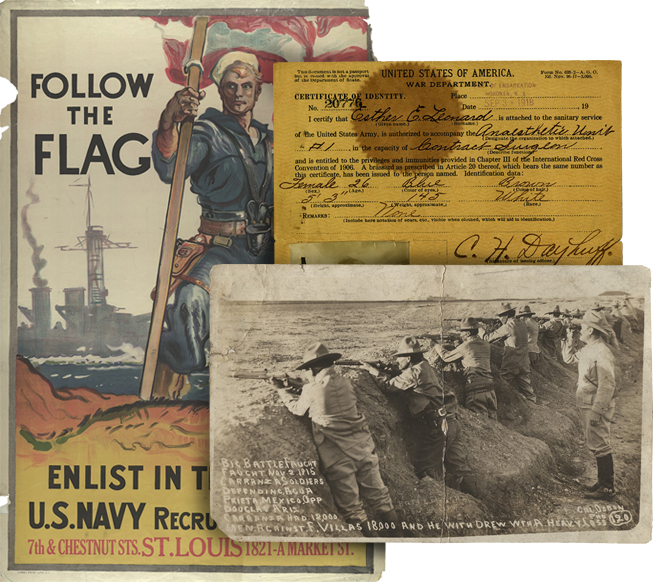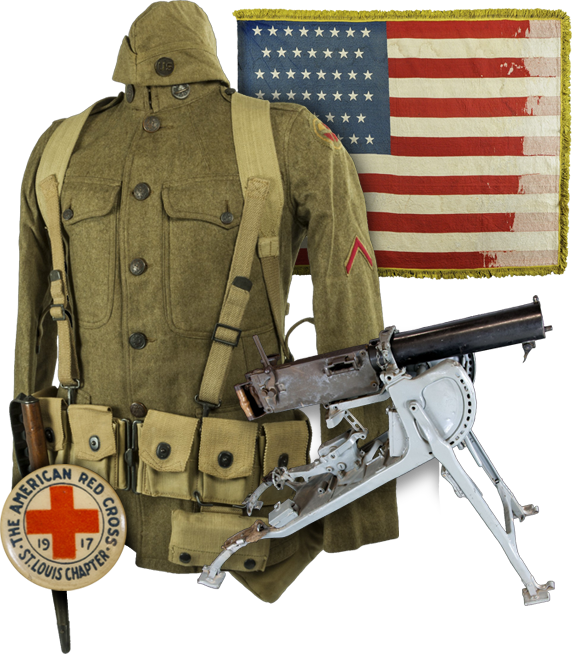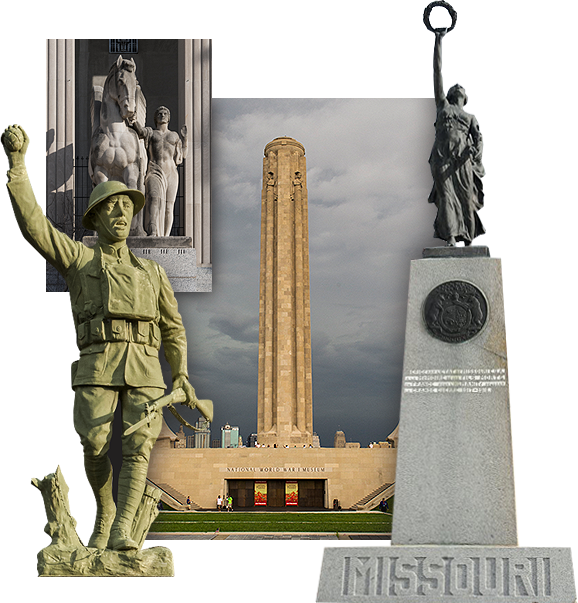Hubert Ward Letter to Joseph Boyce - January 6, 1915

Transcript
No 3 Cavalry Field Ambulance 1st Cavalry Division British Expeditionary Force. January 6th 1915. Capt. Joseph Boyce, St. Louis [Missouri]. My dear Cousin Joe. The papers you so kindly sent me reached me safely last week. In one of them you wrote "write and let me know if you get this and then I shall write to you." It is very kind of you to think of me. Letters out here are much appreciated and it is with great pleasure I write this letter to which I shall eagerly await a reply. Often and often at home have I read you grand long patriotic letters, and I assure you altho’ some of us have never seen you, your name is regarded with reverence and love in the house of Ward. Well in the year 1908 I went to Edinburgh University to study medicine. In 1913 I qualified as a doctor with a degree in medicine and surgery. In 1912 I got a commission in the special reserve R Army Medical Corps. I was qualified then, (1912) but by passing certain exams I got the commission with an understanding I was to qualify in two years. During my time at the University I spent much time at dinners, dances and debates, and the consequence was instead of getting any distinction I had to look sharp in order to qualify in five years. But I don’t regret the time I spent on these hobbies. I had the great satisfaction of leading in a debate on Home Rule and winning by 30 votes in the largest division ever taken in the university.

Transcript
[Page 2] Soon after I qualified, I said good-bye to Edinburgh and became a house surgeon in the Dumfries and Galloway Royal Infirmary. Two months later I because assistant to Dr Hunter in Dumfries. We got on splendidly together, when in August the war broke out - and in obedience to orders, I had to hasten to the Curragh. I was attached to the cavalry and on August 15th we left Queenstown and landed at the [Le Havre] two days later. What I write about now seems to have taken place in another age. The war has not yet gone on six months, but it seems years and years since I landed in France. We entrained at [Le Havre] and two days later we reached MAUBEUGE. From this we went to Givry and before we realised it we were in the battles of Mons. Here I was lucky enough to attend the first wounded man - he was Lieutenant - the Earl of Leven and Melville of the Scot Greys - he was shot through the thigh. I will remember how we set his leg - I gave him chloroform - and put him in bed in a school in Givry. We wanted to take him in an ambulance waggon but they were all gone, and we had to force our hopes to catch them. Two days later we began to retreat and on August 26th I was at the battle of Le Cateau. This was no fair fight. Our infantry were exhausted by prolonged marching, by want of sleep and want of food. About - 4 Army Corps of Germans were against our division. The German infantry had not marched more than a mile or so, for they were taken up on motor lorries

Transcript
[Page 3] almost to the firing line. We went out of the Cateau, and then for 10 days I lost my unit. The details of the retreat I shall not describe. When I look back upon it I am convinced that it was the prayers of my Father and Mother that kept me safe through it all. One thing saved us - the fine weather. Had the weather broken or had the enemy’s cavalry pushed on, we would certainly have all been captured. On [September] 6th I found my unit, and on [September] 6th we began to advance. Ever since I have been in the very thickest of the fighting - at the Marne - at the Aisne for three weeks where my friend Huggan was killed, - at Messines where the London Scottish did so well. - at [Neuve Chapellle] which the Indians took with the bayonet and having no supports were beaten back - at Ypres where the Prussian guard broke through but were cut-off and never got back. Although there are may who differ from me I think the Aisne was the worst - if worst there was - we were there for three weeks and I assure you we had a pretty hot time. At Messines the London Scottish and Cavalry fought side by side, and did splendid - but the Scottish only came into the trenches that day, and all the other regiments had borne the brunt of the fighting from the beginning - and you can imagine the feelings of a soldier in a line regiment who has toiled through it all, who has endured the cold, the hunger the thirst, the mud of the trenches for 23 days and 23 nights,

Transcript
[Page 4] who has all that time fought splendidly, and who at last when almost despairing gets relieved and returns a little way for a days rest - he gets a newspaper from home and sees in big letters "Brilliant Charge of the London Scottish" - the regiment who had fought for a day. I don’t wish to belittle the London Scottish but I assure you the account of their charge was exaggerated beyond all recognition. This happened on November 1st, and shortly afterwards November 10th I was given a new job, which I still retain. I am attached to the Headquarters of the 2nd Cavalry Brigade - (Brigadier General [R. L. Mullens]) -. I am in command of 3 light ambulance waggons 7 horses and 10 men - and my job is to get the wounded from the trenches. I did not like leaving my unit, but later on I began to see many advantages in my new post. I was my own commanding officer and could do what I liked with my little lot. I grew fond of the men under me, who were all brave fellows, and they grew fond of me and would follow me anywhere to get a wounded man. The staff of the Second Cav. Brig. are very nice, and my chief on the staff is none other than Capt Barrett who led the British polo team to victory in the United States last year. He is a Roman Catholic and a very nice man, and gallant officer. In the brigade we have the 9th Lancers, the 4th Royal Irish Dragoon Guards, and the 18th Hussars. They

Transcript
[Page 5] are all fine regiments but in my opinion if I had a choice to make I would pick the 4th Royal Irish Dragoon Guards. Well I could write on and on and still find it impossible to let you know half what I would like to. I have had some very narrow escapes but everybody at the front has had them. No fewer than 20 of my own special medical chums are on the casualty list 8 killed & some very severely wounded. Recently the cavalry have got a rest and I got home for 48 hours. We are still resting and if all goes well I shall have another run home in 10 days time. The weather here is wretched - rain, sleet and snow. The mud is absolutely beyond description - it makes attacks an impossibility. I think this war will last a long time Eighteen months or two years at least; for we shall find it hard to get the enemy out of Belgium. When the war is over I shall probably take a run across the Atlantic - just to have a look at the other side. If I do so I assure you I shall do myself the pleasure of calling to see you and Mrs Boyce and Sally and Joe and all the rest, and I shall tell you about the war until you get tired and tell me to go to bed. But now I am up far beyond all regulation hours, my candle has reached the last half inch, some rats kicking up an infernal now seem to think it is time for me to go to bed and let them play about,

Transcript
[Page 6] so I shall conclude. Good-bye with best wishes for a very happy new year and best love to all believe me always Your affectionate cousin Hubert Ward. P.S. I have retained my old address as above. As the cavalry are constantly on the move, it is more certain to send a letter to the 3rd Cav. Fd. Amb. (from which I can always get it) than to the Headquarters of the 2nd Cav Brigade. JHW [envelope] Capt Joseph Boyce 1226 Pierce Buildings St Louis [Missouri] U.S.A.
Details
| Title | Hubert Ward Letter to Joseph Boyce - January 6, 1915 |
| Creator | Ward, Hubert |
| Source | Ward, Hubert. Hubert Ward Letter to Joseph Boyce. 6 January 1915. Boyce, Joseph Collection, 1844-1913. A0161. The Missouri History Museum, St. Louis, Missouri. |
| Description | In this letter, dated January 6, 1915, Hubert Ward wrote his cousin Joseph Boyce of St. Louis concerning his recent military experience with the British Expeditionary Force. The letter mentioned his involvement in the battles of Mons and Le Cateau in 1914. |
| Subject LCSH | Great Britain. Army. British Expeditionary Force; Great Britain. Army--Cavalry; Great Britain. Army. Royal Army Medical Corps; University of Edinburgh; Mons, 1st Battle of, Mons, Belgium, 1914; Le Cateau, Battle of, Le Cateau, France, 1914; Great Britai |
| Subject Local | WWI; World War I |
| Site Accession Number | A0161 |
| Contributing Institution | Missouri History Museum |
| Copy Request | Transmission or reproduction of items on these pages beyond those allowed by fair use requires the written permission of the Missouri History Museum: 314-746-4510 |
| Rights | The text and images contained in this collection are intended for research and educational use only. Duplication of any of these images for commercial use without express written consent is expressly prohibited. Contact the Missouri History Museum's Permissions Office at 314-746-4511 to obtain written consent. |
| Date Original | January 6, 1915 |
| Language | English |



